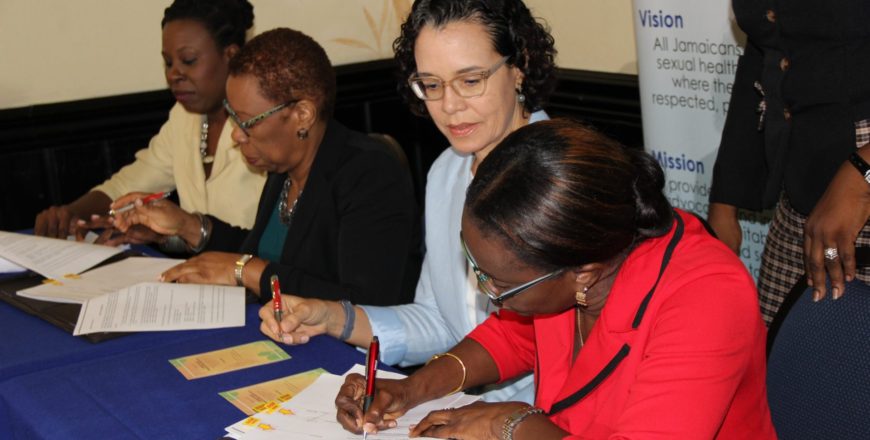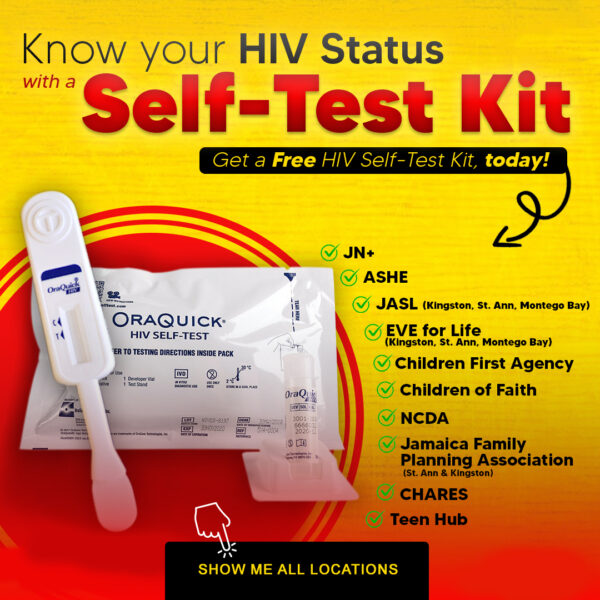
Reproductive Health Survey to be Conducted
The 2019 Jamaica Reproductive Health Survey will be conducted over the next 16-months at a cost of over $72.4 million.
The exercise will be spearheaded by the National Family Planning Board (NFPB), an agency of the Ministry of Health and Wellness, in tandem with the Statistical Institute of Jamaica (STATIN).
It will be used to collate data related to, among other things, fertility, contraceptive use, unmet contraceptive needs, planned and unplanned pregnancies, HIV/AIDS, maternal and child health, sexual abuse, and reproductive health services.
The information will provide the basis for planning and policy development within the Ministry in partnership with the Planning Institute of Jamaica (PIOJ).
It will also complement official country statistics generally collated by STATIN and other local and international organisations. The last survey was conducted in 2008.
[foogallery id=”845″]
Documents formalising arrangements for the survey were signed by representatives of the Ministry, STATIN, and NFPB during a ceremony at The Courtleigh Hotel in New Kingston on Monday (June 10).
The NFPB’s Executive Director, Lovette Byfield, noted that the survey helps in tracking national health objectives and outcomes.
This, she added, is in accordance with the country’s long-term National Development Plan – Vision 2030 Jamaica as well the United Nations (UN) Sustainable Development Goals, which outline national and international health objectives.
“The data is imperative in determining the country’s performance and evaluating our strategies as we continue to strive towards achieving those goals and objectives,” Ms. Byfield pointed out.
In her remarks, STATIN’s Director General, Carol Coy, said the Institute is pleased to partner with the NFPB to conduct another survey.
“Reproductive Health Surveys have, over the years, provided critical health information on the sexual and reproductive health of Jamaicans, such as fertility rates, contraceptive prevalence, sexual and reproductive health and family planning. This has allowed for the development of evidence-based policies and programmes,” she stated.
Ms. Coy said this year’s survey will provide data for several indicators to assess Jamaica’s progress towards the 2030 Development Agenda.
She assured that the survey’s methodology will be consistent with STATIN’s quality assurance framework.
“This requires that all surveys and frameworks produced by STATIN comply with the relevant international standards. This includes ensuring the confidentiality of the respondents to the survey. Also, the methodology and the classifications used will conform to international standards”.
The 2019 survey will be conducted by STATIN, which is also jointly funding the exercise with the NFPB and United Nations Children’s Fund (UNICEF) Jamaica.
The NFPB, an agency of the Ministry of Health and Wellness, is mandated under the National Family Planning Act (1967) to undertake and promote research and disseminate information in relation to family and population planning.
This has seen a series of Reproductive Health Surveys being conducted periodically since 1975. The exercise targets women aged 15 to 49, and men – 15 to 24 years.




Recent Comments